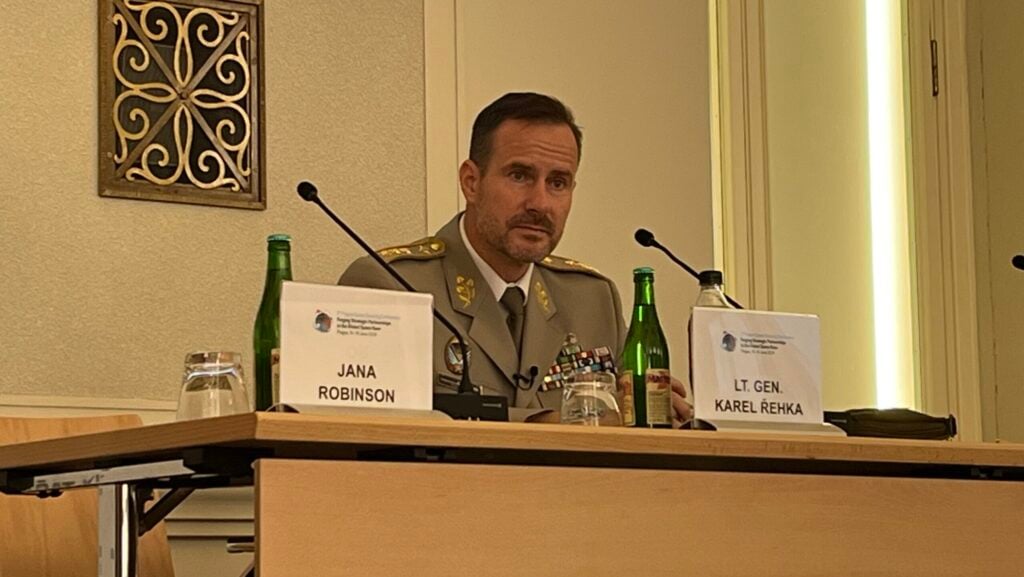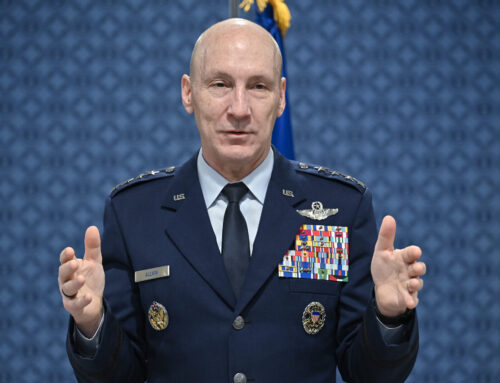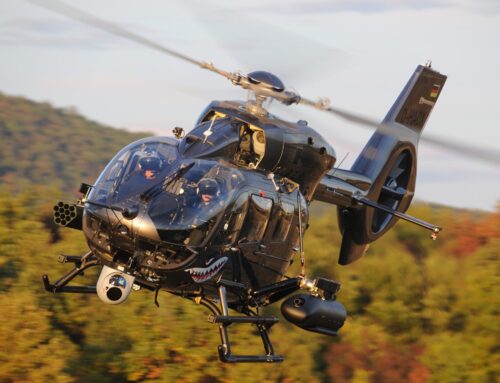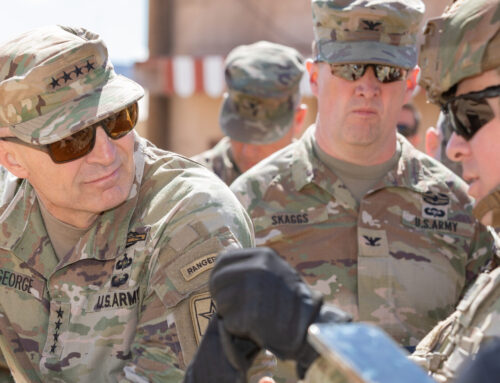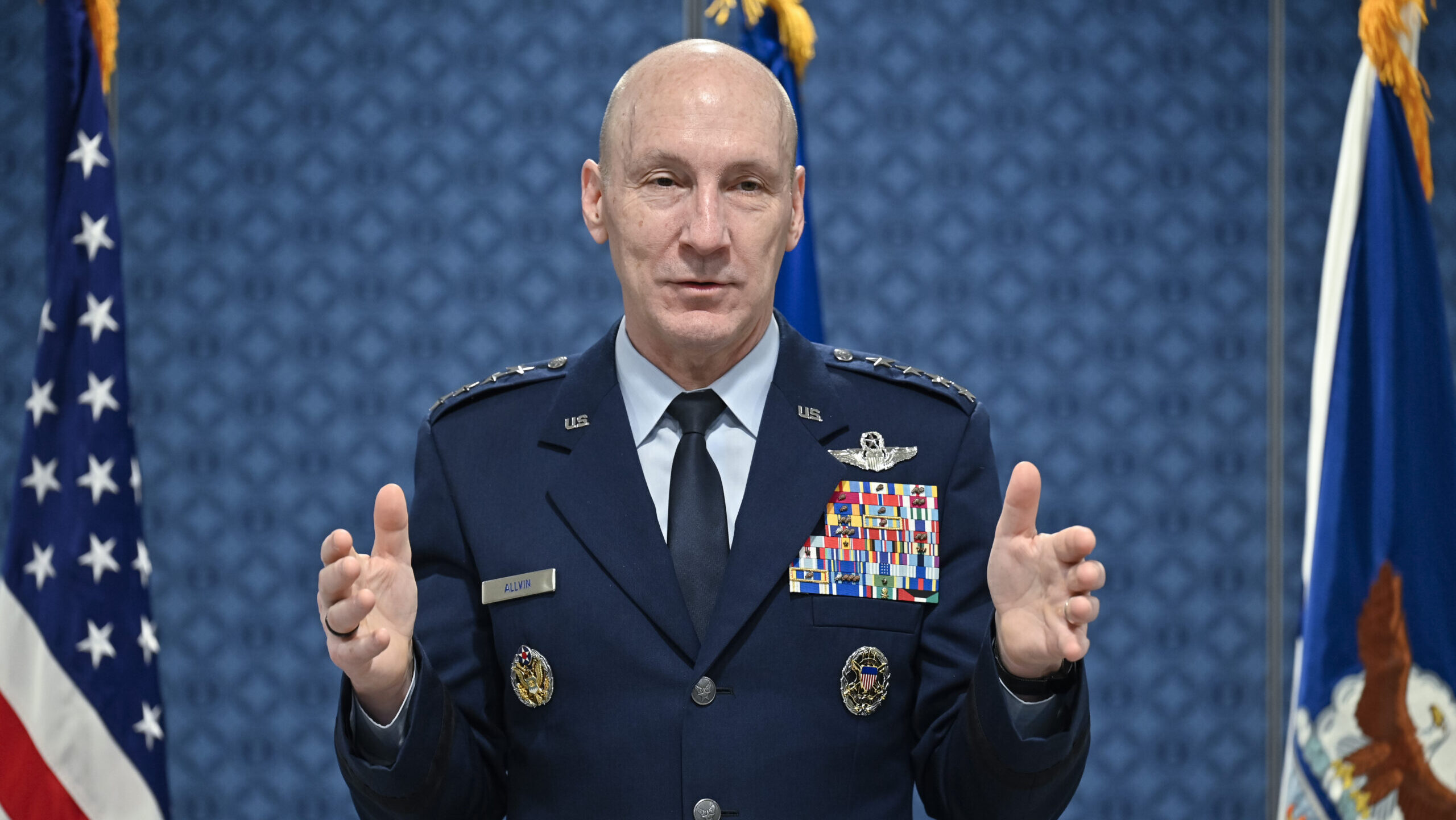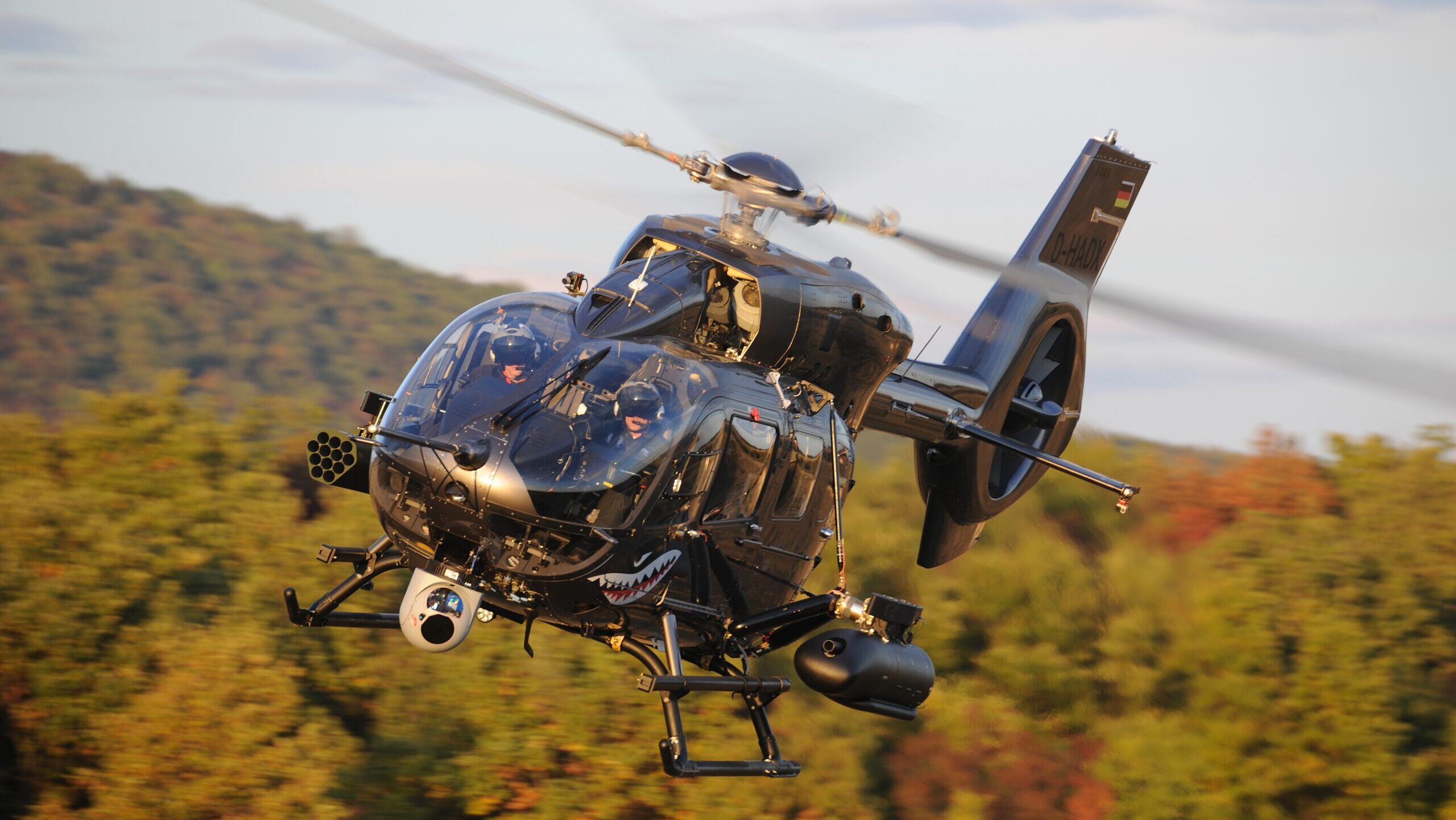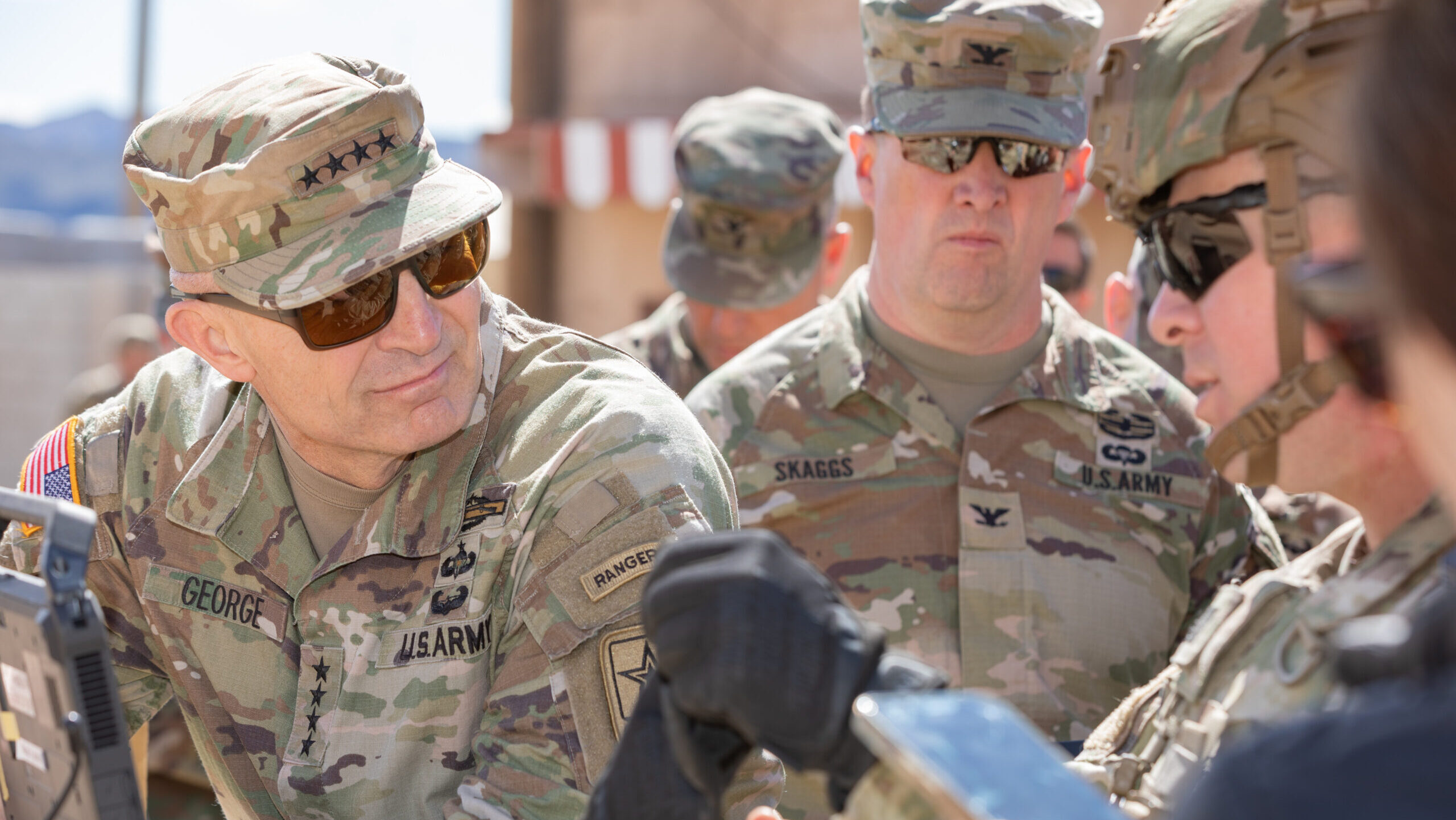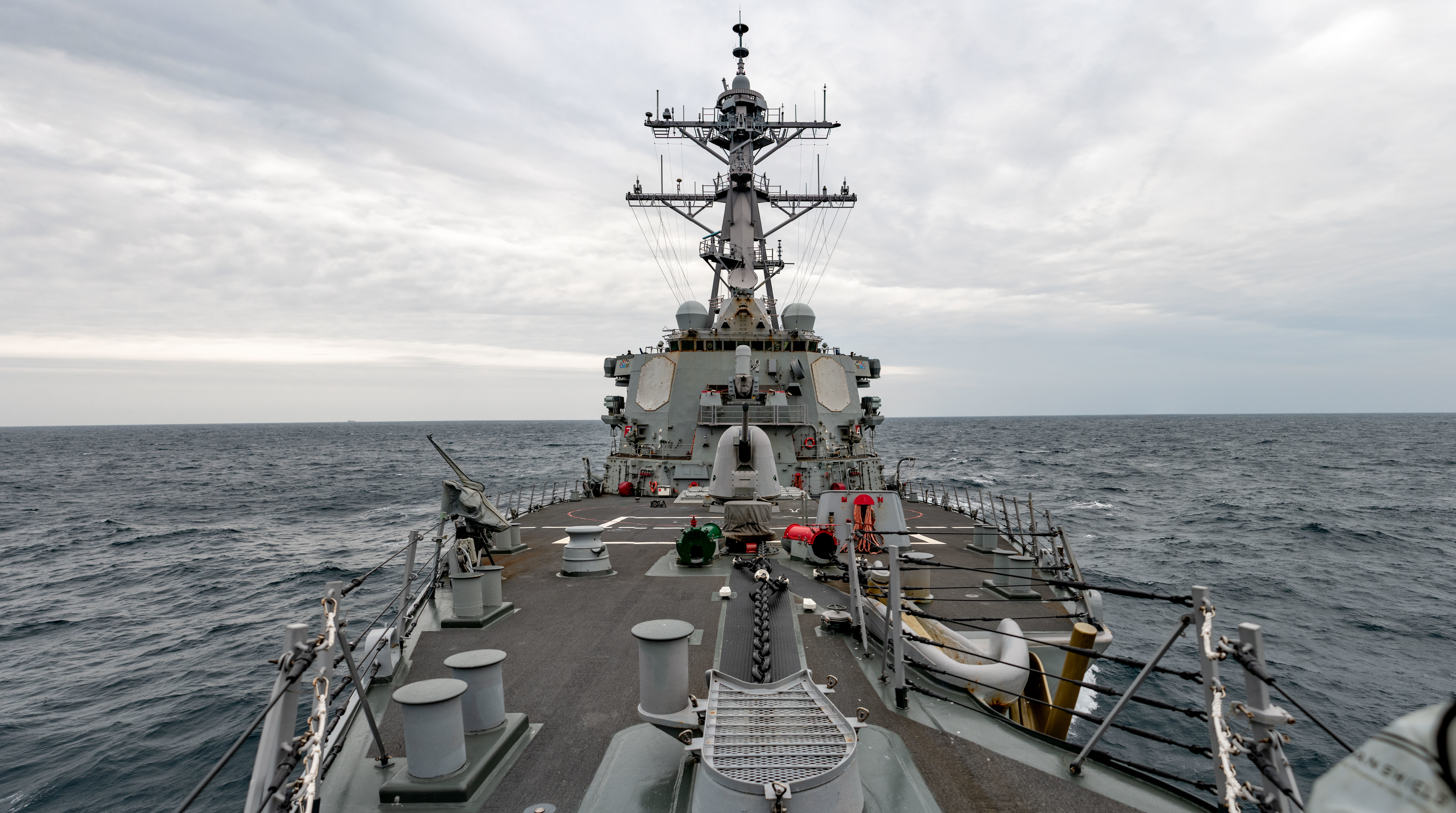Lt. Gen. Karel Rehka, chief of the General Staff of the Czech Armed Forces. (Photo: Theresa Hitchens)
PRAGUE — Recognizing the importance of space to prosecuting the conflicts of today and tomorrow, the Czech military chief has put access to satellite imagery, and artificial intelligence to help sift through it, on his wish list for new space capabilities.
“So, if I want to wish something now, which we don’t have yet but could work on now, that would be a combination of imagery intelligence with the artificial intelligence,” Lt. Gen. Karel Rehka, chief of the General Staff of the Czech Armed Forces, told the 7th Prague Space Security Conference, sponsored by the Prague Security Studies Institute, today.
In particular, he said, those capabilities would help the military keep a close eye on rapidly changing situations on the battlefield.
While the Czech Armed Forces has a limited budget, Rehka said there “are a lot” of imagery and AI capabilities already available from commercial companies that could be leveraged — both by the Czech government alone but also in cooperation with others.
“In a small military with limited resources and a lot of tasks, we have to prioritize. I think we need to look for sustainable solutions as cost effective solutions,” he said. “The Czech Republic will probably not put a huge amount of expensive satellites in space. So, I think we need to be smart. … We need to be able to plug in existing solutions. We need to be able to create synergy with our partners and allies.”
Rehka stressed that space systems are the foundation to modern militaries.
“I mean, that there’s no fighting or no function without command control, and there’s no command and control without communications. So, I think the comms is definitely the most important,” he said. “The navigation and timing is equally important because, first you need to get where you want to be. But second, also there’s a lot of weapon systems which use satellite navigation and that timing is also very critical because without timing you cannot synchronize radios, for example.”
And while the Czech military does have those basic systems, Rechka noted that there is a plethora of new space-based technologies in use by the civilian world not yet in the hands of soldiers.
“I think we still have to do a lot to catch up, to use all these technologies which are already available and use [them] properly,” he said.


